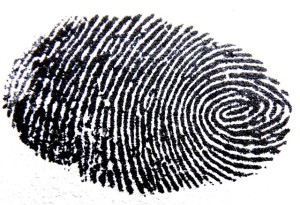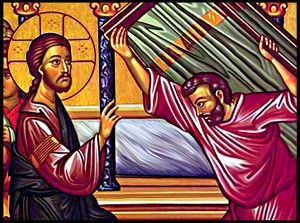Written by Dawn Rutan
It happened again—two unrelated books mentioned a related idea that got me thinking. One was The Great House of God, by Max Lucado, and the other was Her Mother’s Hope, by Francine Rivers. The phrases that triggered my brain were “Father, forgive them for they know not what they do,” and “Forgive us our debts as we forgive our debtors.”
It’s hard enough to forgive someone who recognizes their sin and asks for forgiveness. But it can be even harder to forgive someone who either doesn’t realize they’ve hurt us or else refuses to confess the wrong. When Jesus was on the cross, He forgave those who enabled the crucifixion, those who nailed Him to the cross, the mockers, those who gambled for His clothes—all kinds of people who had no idea what they had done. Whether they were following the crowd, following orders, or following manmade laws, Jesus forgave them unilaterally. We could learn from His example.
We do all kinds of hurtful things out of habit, learned from poor examples, trying to protect our own wounds, or just because we’re too busy and distracted to consider others’ needs. When that coworker says something abusive yet again, perhaps he’s afraid of losing another job to a competitor. When someone cuts us off in traffic, perhaps she’s late to a doctor’s appointment. When your parent disparages you in public, perhaps that’s how they were treated themselves. Can you give them a little grace and extend forgiveness even though they don’t ask for it or think they need it?
This is more than just making excuses for someone. There are times when confrontation is appropriate and necessary. If we don’t realize we’ve hurt someone, how can we learn to change our behavior in the future? But at the same time, we can’t go around confronting everyone who acts without thinking. Some Christians are great at keeping records. They may say, “Well, that’s just Sally being Sally.” They aren’t really forgiving, but are just adding it to their list of grievances.
I like Lucado’s illustration—if we refuse to forgive someone, we are the ones left guarding the jail cell while they may not even know we’ve imprisoned them within our hearts. Forgiving others frees us to get on with our lives. The greater the wounds we’ve received, the harder it is to forgive, but also more necessary. Lewis Smedes wrote in Forgive and Forget, “When you release the wrongdoer from the wrong, you cut a malignant tumor out of your inner life. You set a prisoner free, but you discover that the real prisoner was yourself.”
Charles Stanley wrote in Landmines in the Path of the Believer, “We are to forgive so that we may enjoy God’s goodness without feeling the weight of anger burning deep within our hearts. Forgiveness does not mean we recant the fact that what happened to us was wrong. Instead, we roll our burdens onto the Lord and allow Him to carry them for us.”
It’s been my experience that forgiveness is both a one-time event and an ongoing process. We can make a single choice to forgive a person, but learning to let go of the hurt can take a lifetime. When the pain comes back or Satan tries to goad us with it, we have to remind ourselves that we have indeed forgiven the person and handed that burden over to God. The same can be true of learning to forgive ourselves as God has forgiven us. Even when the wounds are healed, there are often scars that will remain. Those scars can either remind us of the pain or remind us of the goodness and faithfulness of God.
“Put on then, as God’s chosen ones, holy and beloved, compassionate hearts, kindness, humility, meekness, and patience, bearing with one another and, if one has a complaint against another, forgiving each other; as the Lord has forgiven you, so you also must forgive” (Colossians 3:12-13 ESV).





